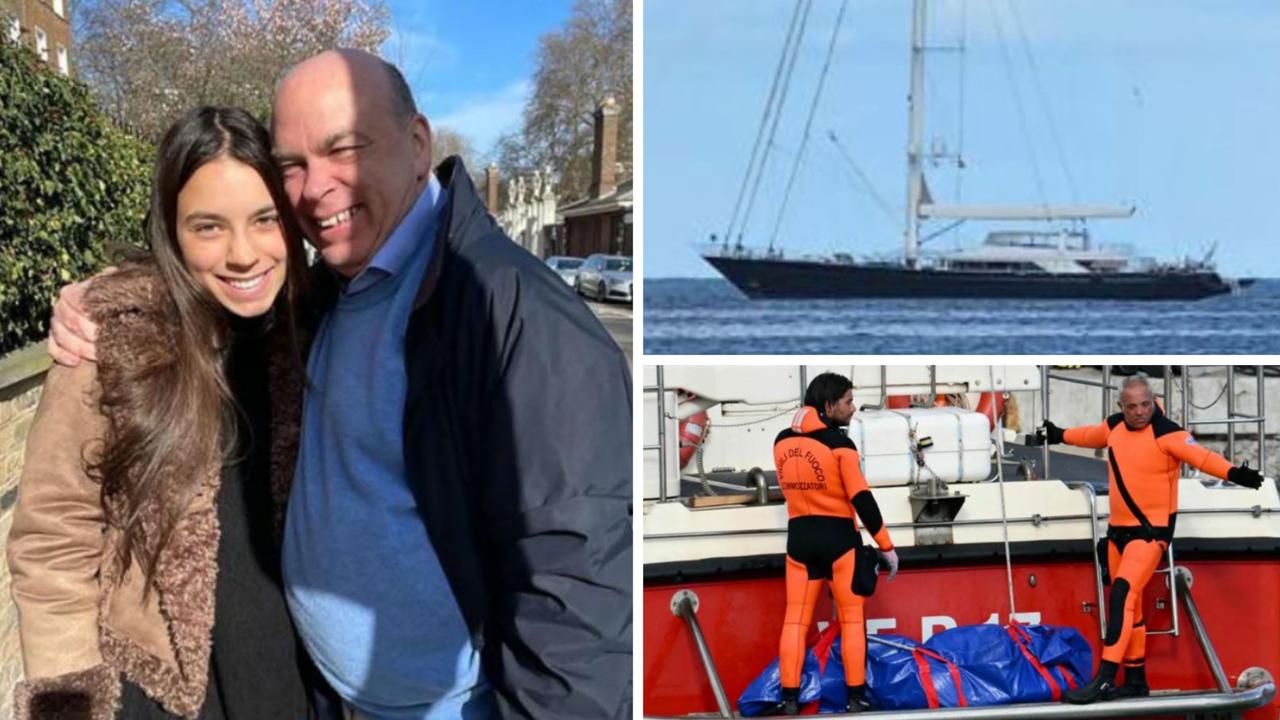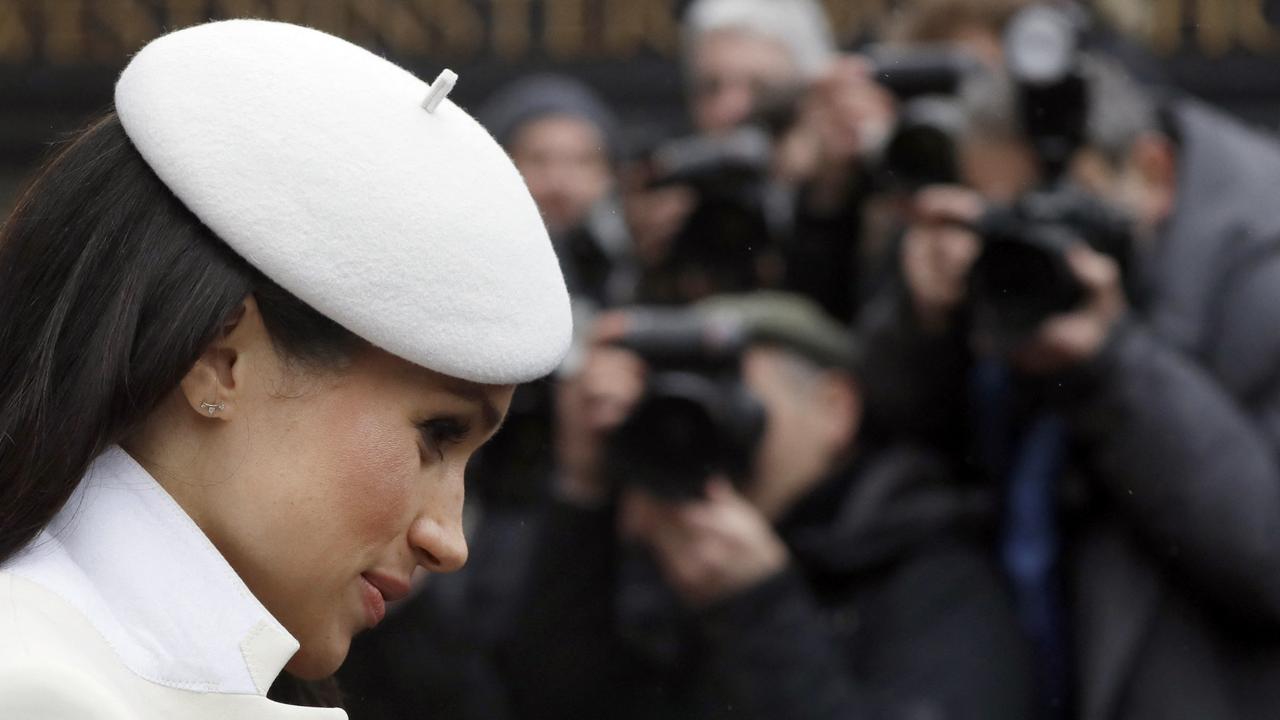‘Doomsday’ closest in history amid Russia nuclear threat
The “Doomsday Clock” has moved its closest ever to midnight amid the Ukraine war, as two Brits killed on the frontline are identified.
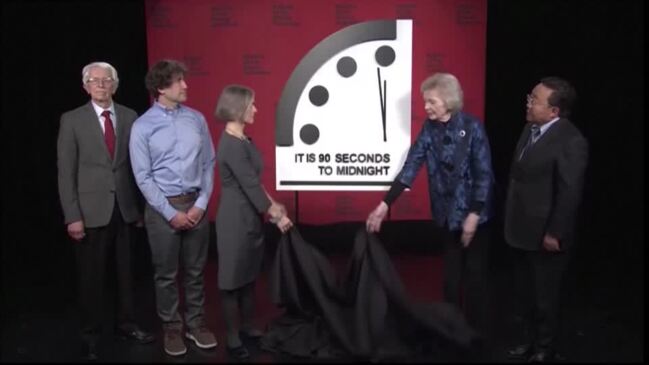
World
Don't miss out on the headlines from World. Followed categories will be added to My News.
The “Doomsday Clock” moved its closest ever to midnight amid the Ukraine war, nuclear tensions and the climate crisis.
The Bulletin of the Atomic Scientists, which describes the clock as a “metaphor for how close humanity is to self annihilation,” moved its hands from 100 seconds to midnight to 90 seconds to midnight.
Symbolising the perils to humanity, the decision to reset the hands of the symbolic clock is taken each year by the Bulletin’s science and security board and its board of sponsors, which includes 11 Nobel laureates.
The hands of the clock moved to 100 seconds to midnight in January 2020 — the closest to midnight it has been in its history — and remained there for the next two years.
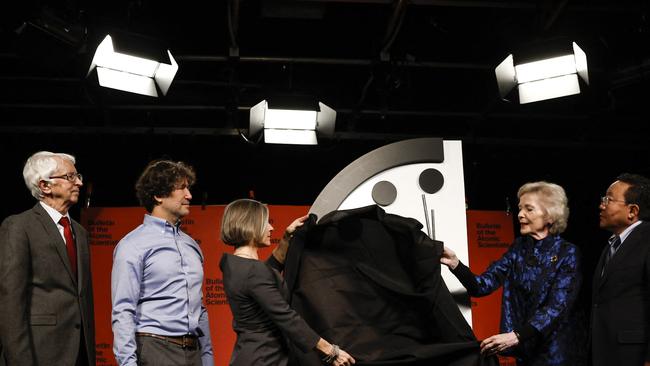
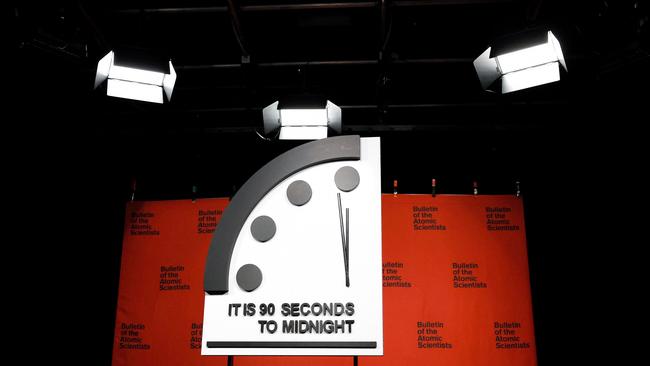
In a statement, the Bulletin said it was advancing the hands of the clock this year “due largely but not exclusively to Russia’s invasion of Ukraine and the increased risk of nuclear escalation.”
“The new clock time was also influenced by continuing threats posed by the climate crisis and the breakdown of global norms and institutions needed to mitigate risks associated with advancing technologies and biological threats such as COVID-19,” it added.
The clock was originally set at seven minutes to midnight.
The furthest from midnight it has ever been is 17 minutes, following the end of the Cold War in 1991.
The Bulletin was founded in 1945 by Albert Einstein, J. Robert Oppenheimer and other scientists who worked on the Manhattan Project which produced the first nuclear weapons.
The idea of the clock symbolising global vulnerability to catastrophe followed in 1947.
TWO UK HUMANITARIAN WORKERS KILLED
Two Britons missing in Ukraine since this month were killed while attempting a “humanitarian evacuation” from a war-ravaged town in the east, one of the men’s families confirmed.
Chris Parry, 28, and Andrew Bagshaw, 48, died while undertaking voluntary work in Soledar, in the Donetsk region of Ukraine, Mr Parry’s family said in a statement released by Britain’s Foreign Office.
Mr Bagshaw is also a New Zealand citizen, according to reports, with the country’s foreign ministry saying earlier this month it was “working with relevant agencies in the UK to confirm the latest situation”.
Concern had grown about their fates after the head of the Russian mercenary group Wagner, which helped capture Soledar from Ukrainian forces recently, said on January 11 that one of the missing men’s bodies had been found there.
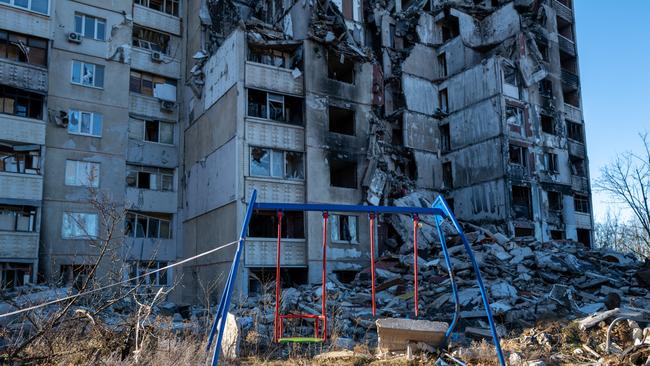
Wagner‘s boss Yevgeny Prigozhin had also published online photographs of passports that appeared to belong to Mr Parry and Mr Bagshaw, which he claimed were found with the corpse.
“It is with great sadness we have to announce that our beloved Chrissy has been killed along with his colleague Andrew Bagshaw whilst attempting a humanitarian evacuation from Soledar,” the family’s statement said.
“His selfless determination in helping the old, young and disadvantaged there has made us and his larger family extremely proud,” it added, describing him as “a caring son, fantastic brother, a best friend to so many”.
The family noted he had previously worked as a software engineer and loved rock climbing, cycling, running and skydiving, and had always wanted to travel the world.
“He found himself drawn to Ukraine in March in its darkest hour at the start of the Russian invasion and helped those most in need, saving over 400 lives plus many abandoned animals,” the family said.
“It is impossible to put into words how much he will be missed but he will forever be in our hearts.”
CALL TO BAN RUSSIAN ATHLETES FROM PARIS OLYMPICS
Russian athletes should have “no place” at the 2024 Paris Olympics, Ukrainian President Volodymyr Zelenskyy told French counterpart Emmanuel Macron on Tuesday, as his country marked 11 months of war.
“I particularly emphasised that athletes from Russia should have no place at the Olympic Games in Paris,” Mr Zelenskyy wrote on Telegram following a telephone call with Mr Macron.
Russia launched its invasion on February 24 last year, just days after the closing ceremony of the Beijing Winter Olympics.
The International Olympic Committee swiftly sanctioned Russia and neighbouring Belarus, which Moscow’s troops used as a launch pad for the assault.
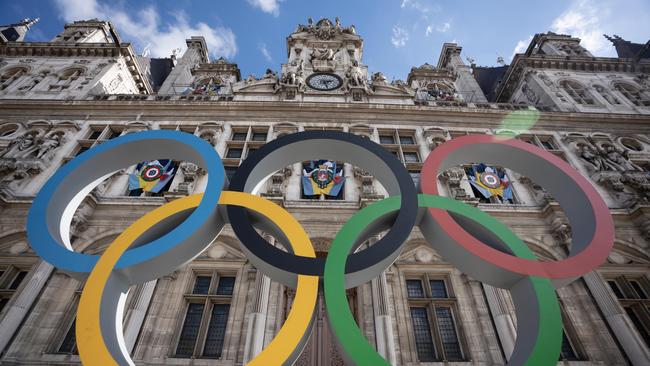
No international sporting event has been organised in Russia or Belarus since the outbreak of the conflict and the countries’ national symbols have been removed from such major competitions.
IOC chief Thomas Bach said last year that he would like to see the sporting sanctions extended in 2023 and a strong Ukrainian team at the Paris Olympics and the 2026 Winter Olympics in Italy.
Mr Zelenskyy in December called for all Russian athletes to be completely isolated from international competitions.
The Ukrainian president also told Bach that he fiercely opposed the US Olympic and Paralympic Committee’s view that Russian and Belarusian athletes could compete at the Paris games as long as they did not bear their countries’ flags.
WAR BETWEEN WEST AND RUSSIA ‘ALMOST REAL’
Russia’s foreign minister has accused the West of planning to eradicate Russian “language” and “culture” for decades and that the war in Ukraine is the stage for them to carry out their plot.
Sergei Lavrov warned the war between Russia and the West is no longer hybrid but is “almost a real one”, as he blasted Ukraine’s allies for sending weapons to the war-torn country.
“When we speak about what is happening in Ukraine – it is a war, not a hybrid one, almost a real war, that the West has been plotting for a long time against Russia,” he said.
“The goal is to destroy everything Russian, from language to culture, that has been in Ukraine for centuries and to prohibit people from speaking their mother tongue.”
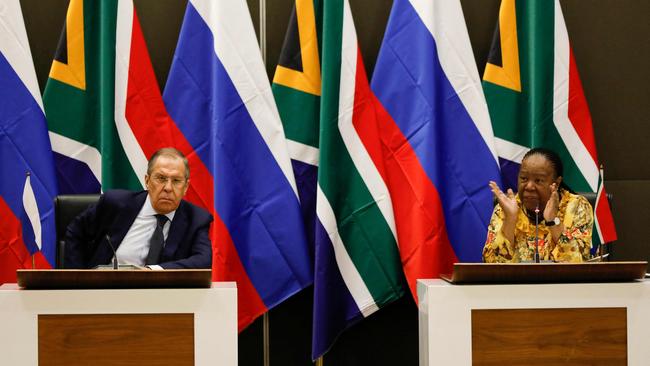
Mr Lavrov also accused the West of stopping peace negotiations between Russia and Ukraine in the early months of the war.
He claimed Russia didn’t “refuse negotiations” with Ukraine and was willing to negotiate, however, he said the US and other Western countries advised Kyiv against it.
“It is well known that we supported the proposal of the Ukrainian side to negotiate early in the special military operation and by the end of March, the two delegations agreed on the principle to settle this conflict,” he said.
“It is well known and was published openly that our American, British, and some European colleagues told Ukraine that it is too early to deal, and the arrangement which was almost agreed was never revisited by the Kyiv regime.
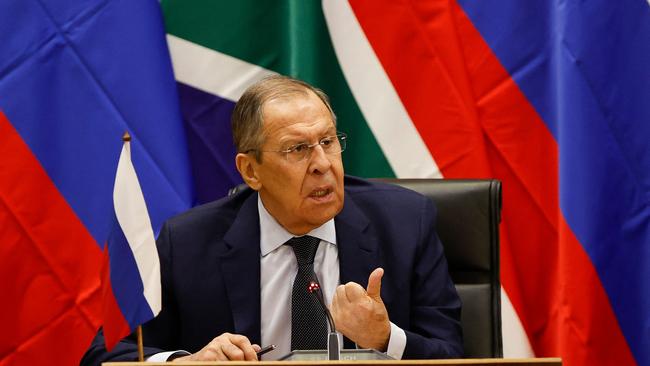
“But those who refuse must understand that the longer they refuse, the more difficult it is to find a solution.”
His remarks were made while on a visit to South Africa which was similar to the comments made last year by Russian President Vladimir Putin that his country was ready for talks but Ukraine’s Western allies prevented that from happening.
It comes as the US and other Western countries have maintained that Russia isn’t serious about negotiations to end the war, with next month set to mark one year since the war began.
EU AGREES TO BIG WEAPONS BOOST FOR UKRAINE
EU foreign ministers have agreed to use an additional 500 million euros ($A770 million) from their common coffers on arms for Ukraine, diplomats said, as Kyiv pleads for heavier weapons.
The accord reached on Monday will take the overall amount committed to supplying Ukraine’s military from the bloc’s common spending to 3.6 billion euros, which is separate from national spending by individual EU member states.
European nations have pledged more than 11 billion euros on weapons for Ukraine, EU officials say, less than half of what the United States is spending.
The latest tranche of funds comes as Germany faces intense pressure over its hesitation on giving battle tanks to Ukraine.
“We need bold, decisive, and audacious steps to secure Ukraine’s victory in 2023,” Ukrainian Foreign Minister Dmytro Kuleba tweeted after briefing his counterparts form the EU.
Ministers from the EU’s Baltic nations led calls for Berlin to green light sending Leopard 2 tanks to Kyiv at the meeting in Brussels.
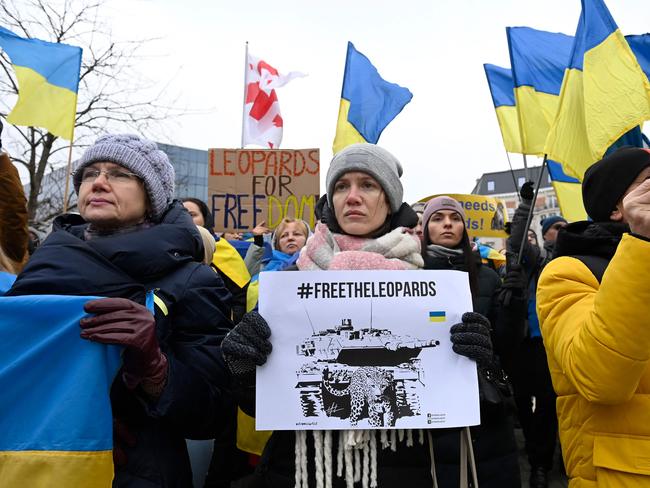
It comes as Moscow’s forces push towards two towns in Ukraine’s Zaporizhzhia region, where fighting intensified this week, Russian state media reported on Sunday.
Russian’s official in the region, Vladimir Rogov, said offensive actions and active fighting were concentrated around two towns: Orikhiv, around 50 kilometres south of Ukrainian-controlled regional capital Zaporizhzhia, and Hulyaipole, further east.
“The front is mobile, especially in two directions: Orikhiv and Hulyaipole,” Mr Rogov was quoted as saying by the Ria Novosti news agency. “The initiative is in our hands.”
The Russian army claimed for a second day in a row that it had taken “more advantageous lines and positions” after “offensive operations” in Zaporizhzhia.
It claimed to have hit Ukrainian positions in the village of Lezhyno, outside the regional capital of Zaporizhzhia, which has not fallen to Ukrainian forces.
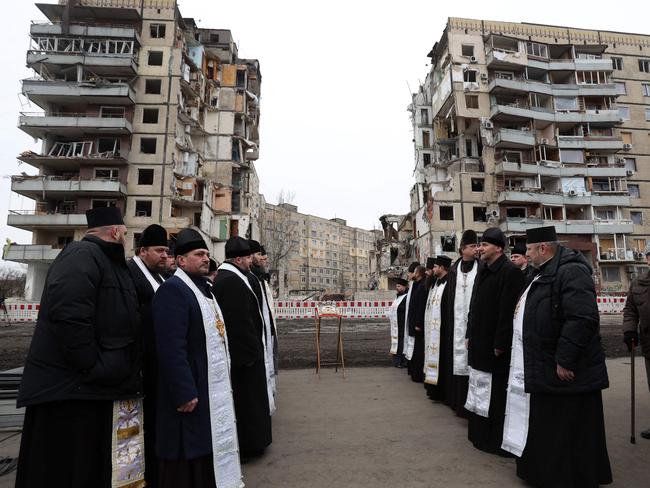
In its daily report on Sunday, the Ukrainian army said “more than 15 settlements were affected by artillery fire” in Zaporizhzhia.
Earlier this week, Mr Rogov announced a “local offensive” around Orikhiv and said the Russian army had taken control of the village of Lobkove, near the Dnipro river.
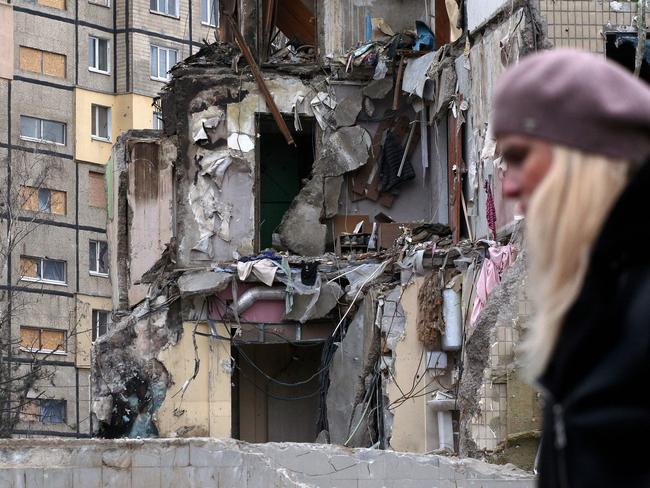
He also said this week that fighting has “sharply increased” in the southern region.
Russia claims to have annexed the Zaporizhzhia region along with three other Ukrainian regions, but does not control it in its entirety.
While Moscow controls large swathes of the southern part of the region, its main city Zaporizhzhia and northern part did not fall to Russian forces yet but Moscow has vowed to push Ukrainian forces out of them.
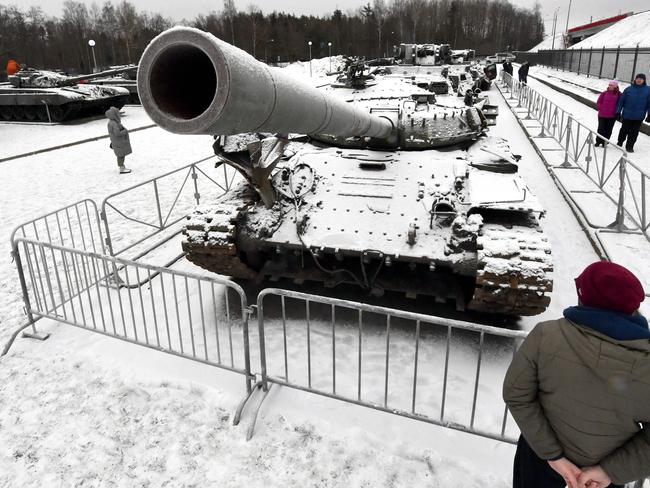
GLOBAL INDECISION IS ‘KILLING US’: UKRAINE
Ukraine blasted the “global indecision” of its allies after Germany stalled on supplying its vaunted Leopard tanks to bolster Kyiv’s fighting capacity in the nearly year-long war with Russia.
On Friday, some 50 nations agreed to provide Kyiv with billions of dollars’ worth of military hardware, including armoured vehicles and munitions needed to push back Russian forces.
But German Defence Minister Boris Pistorius on Saturday said that despite heightened expectations, “We still cannot say when a decision will be taken, and what the decision will be, when it comes to the Leopard tank.”
“Today’s indecision is killing more of our people,” Ukrainian presidential adviser Mykhailo Podolyak tweeted.
“Every day of delay is the death of Ukrainians. Think faster,” he said.
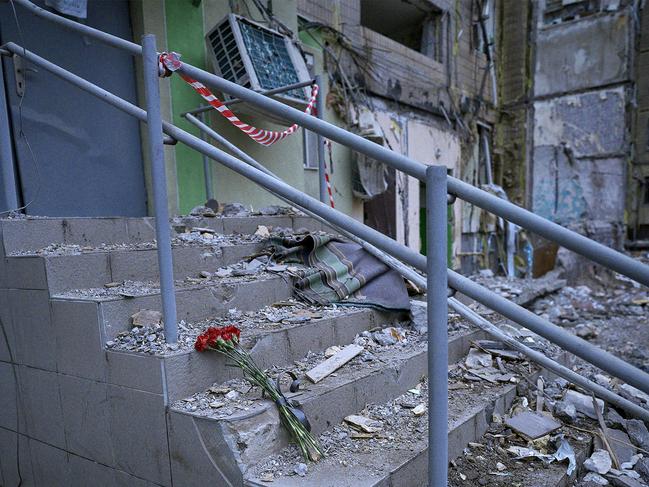
In a joint statement the foreign ministers of the three Baltic States urged Germany “to provide Leopard tanks to Ukraine now.
“This is needed to stop Russian aggression, help Ukraine and restore peace in Europe quickly,” said a message tweeted by Latvian Foreign Minister Edgars Rinkevics and his Estonian and Lithuanian counterparts.
“Germany as the leading European power has special responsibility in this regard,” they added.
In Berlin, hundreds of people demonstrated outside the Federal Chancellery building calling for Germany to send tanks to Ukraine.
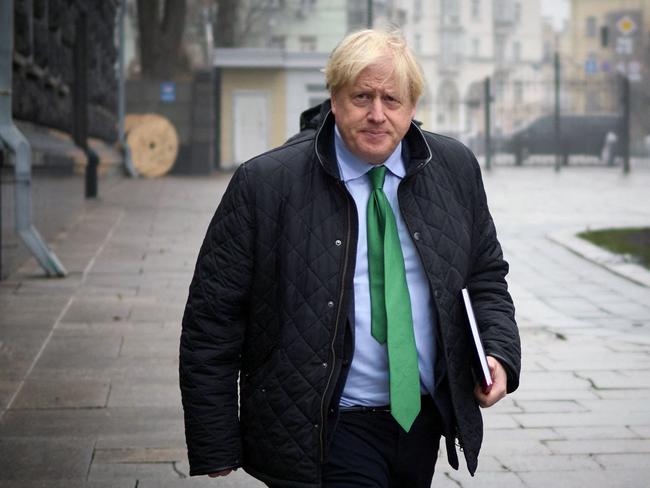
BORIS JOHNSON MAKES SHOCK VISIT TO UKRAINE
Boris Johnson, who is on a visit to Ukraine, has weighed in on the debate over whether Ukraine will get more tanks to fight Russian forces.
“The only way to end this war is for Ukraine to win – and to win as fast as possible … The sooner Putin fails, the better for Ukraine and for the whole world.”
The former UK prime minister, who said he was invited to Ukraine by Volodymyr Zelensky, was on a walkabout of the town of Borodyanka.
Mr Johnson said: “It is a privilege to visit Ukraine at the invitation of President Zelenskyy. The suffering of the people of Ukraine has gone on for too long.
In a statement released by PA Media, Mr Johnson hinted at his support for more tanks to be sent to Kyiv, saying: “This is the moment to double down and to give the Ukrainians all the tools they need to finish the job.”
Current UK Prime Minister Rishi Sunak is “supportive” of the former PM’s visit to Ukraine, The Prime Minister’s press secretary said he is “always supportive of all colleagues showing that the UK is behind Ukraine and will continue to support them”.



